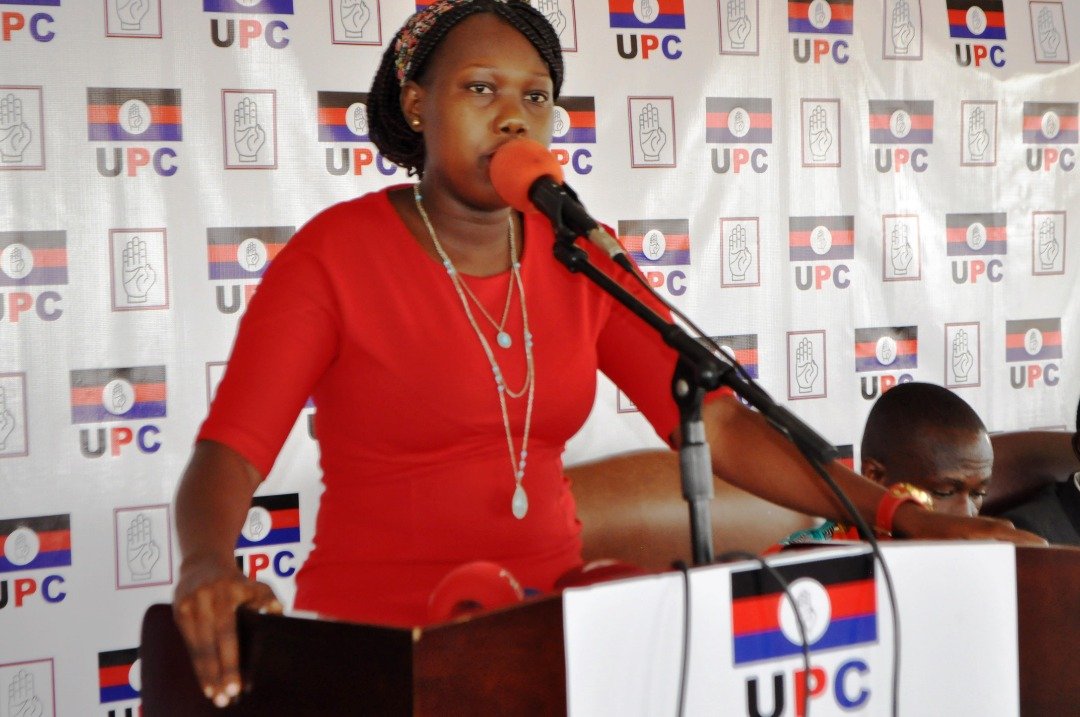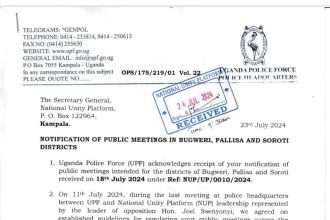The Uganda People’s Congress (UPC) has expressed strong support for the government’s recent agreement with a Turkish investor to construct the Standard Gauge Railway (SGR), a project valued at $2.3 billion (approximately 10 trillion Ugandan shillings). The UPC’s spokeswoman, Sharon Arach, commended the deal during the party’s weekly press conference at their headquarters in Kampala on October 16, 2024.
Arach emphasized that the UPC has long been urging the government to expedite the process of upgrading Uganda’s railway infrastructure. The recent steps taken to repair the one-metre gauge railway and now commence the SGR project were described as commendable, although she noted that the progress has been long overdue. She acknowledged the project as a “giant milestone” for the country’s transport system.
The deal, signed on October 14, 2024, between the Ugandan government and Turkish construction firm Yapi Merkezi, will see the construction of a 270-kilometre stretch of the SGR. This rail line is expected to improve trade within the East African region and enhance Uganda’s connectivity with its neighbors. The SGR is seen as a key project to boost regional economic integration and trade, particularly with the Democratic Republic of Congo and South Sudan as primary beneficiaries.
However, Arach urged the government to ensure that both the one-metre gauge railway and the SGR projects are completed within the specified time frame to avoid cost overruns commonly associated with delayed projects. She pointed to previous infrastructure projects such as the Kampala Expressway, Busega-Mpigi Expressway, and Lubowa Specialised Hospital, which were delayed and became more expensive due to mismanagement of timelines.
Arach also highlighted the potential benefits of the SGR project for the East African region, stressing that improved railway infrastructure would promote economic growth and development among member states of the East African Community (EAC). She noted that the UPC has always valued railway transport as a crucial driver for opening up vast areas to trade and development.
The deal was signed by Dr. Erden Ariojlu, the vice-chairperson of Yapi Merkezi, on behalf of the Turkish firm, and Uganda’s works ministry permanent secretary, Eng. Waiswa Bageya, on behalf of the government. According to Bageya, the SGR project will be fully funded by the Ugandan government and is expected to be completed within 48 months. The rail line will connect Malaba to Kampala, linking Uganda to Kenya’s rail network and further to the Indian Ocean seaport of Mombasa.
At the press briefing, Arach was joined by Kaberamaido Woman Member of Parliament aspirant Joyce Akello, women’s league leader Phiona Arinaitwe, and the party’s head of communications, Faizo Muzeyi. The party leaders took the opportunity to criticize the ruling National Resistance Movement (NRM) government for favoring road transport over rail transport during its 38 years in power. Arach argued that rail transport is a more efficient and sustainable means of moving goods and people and should have received more attention.
In addition to praising the SGR project, the UPC raised concerns about the recent deal involving a new investor from Ghana tasked with transforming the Kiteezi landfill. The landfill was the site of a tragic incident that resulted in the deaths of over 35 people and animals, as well as the destruction of property worth millions. The party questioned the selection process for the Ghanaian company, warning that due diligence must be exercised to ensure public funds are not mishandled.
Arach suggested that local Ugandan companies could have been considered for the waste management project, and she reiterated the UPC’s stance that the government should prioritize local firms to promote the “Buy Uganda, Build Uganda” (BUBU) policy. She emphasized the importance of ensuring that foreign investors do not repatriate profits at the expense of Uganda’s economic development, and she called for thorough background checks on companies involved in such high-stakes projects.
The UPC’s statements come at a time when infrastructure development, particularly in the transport sector, is seen as critical to Uganda’s economic future. With the SGR expected to enhance regional trade and improve connections between Uganda and neighboring countries, the party’s call for efficiency and transparency in executing the project reflects growing public interest in ensuring that major development projects are successfully completed without delays or cost overruns.
Tables for Illustration:
| Project | Status | Completion Timeline | Key Concerns |
|---|---|---|---|
| Standard Gauge Railway (SGR) | Deal signed | 48 months (4 years) | Timely execution, cost overruns |
| One-Metre Gauge Railway | Underway | N/A | Project timeline management |
| Kampala Expressway | Delayed | N/A | Costly delays, mismanagement |
| Busega-Mpigi Expressway | Delayed | N/A | Cost overruns, mismanagement |
| Lubowa Specialised Hospital | Delayed | N/A | Project delays and mismanagement |
| UPC’s Concerns | Details |
|---|---|
| SGR and Metre Gauge Railway Projects | Commendable progress, urge timely completion |
| Kiteezi Landfill Deal | Concern over selection process for Ghanaian company, need for due diligence |
| Promotion of Local Companies | Advocate for “Buy Uganda, Build Uganda” policy in large projects |




















